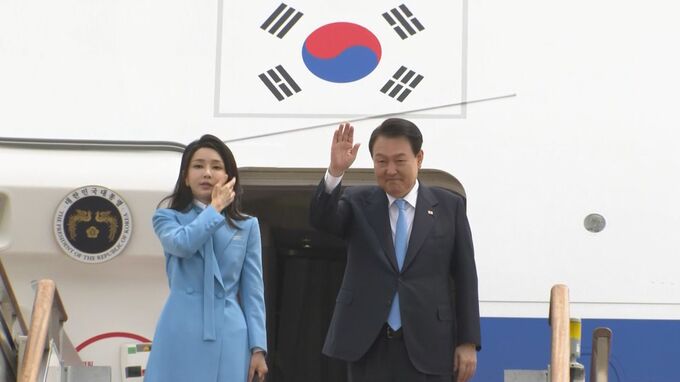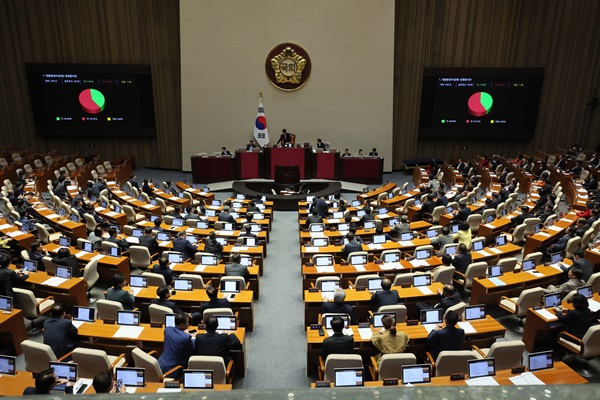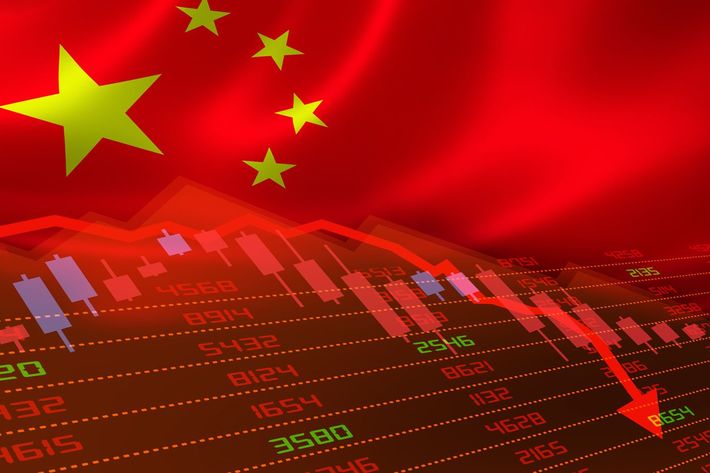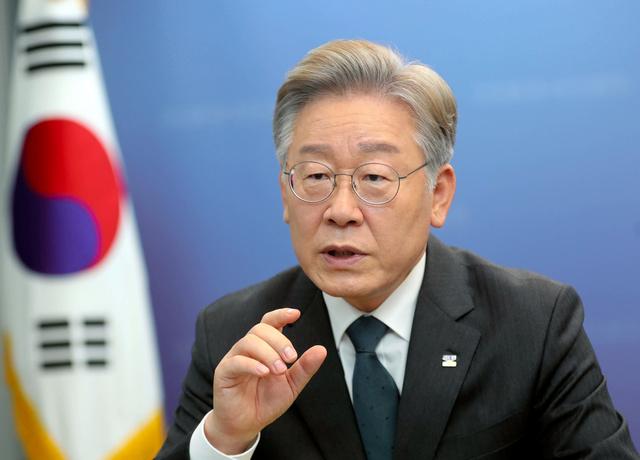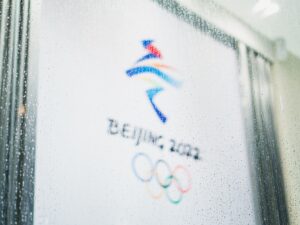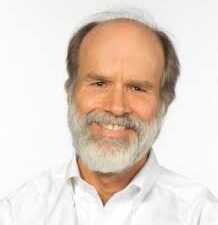Internal Conflicts Intensify” in the Largest Opposition Party that Hates Japan
Hyundai Business
The dismissal of the detention warrant for Ri Jae-myung, head of South Korea’s largest opposition party, the Co-operative Democratic Party of Korea (DPJ) (hereafter referred to as “DPJ”), on March 27, places a heavy burden on the government, prosecutors, and the DPJ.
Part 1: “Korean politics is going into chaos again…! As pointed out in the previous part, “The Dismissal of the Arrest Warrant and the ‘Stupefying Political Conflict’ of Lies and Betrayal by the ‘Japan-Bashing Party Leader,'” the dismissal of the arrest warrant has enraged the public, meaning that the conflict will intensify over who will take control of the judges’ personnel issues and the parliamentary elections next April. In addition, for the prosecutors, the dismissal of the arrest warrant will inevitably make future investigations and post-indictment trials against Ri Jae-myung more difficult. Meanwhile, the DPJ’s vote on the arrest warrant at the National Assembly on March 21 resulted in a large number of defections and a clear division in the party. How will the intra-party conflict, which has grown insurmountable, deepen in the future?
The Dastardly “Letter of Intimidation” and the Stunning Content of “Internal Fighting
With the passage of the capture agreement bill through the National Assembly, the rebellious legislators have received retaliatory messages from party officials, and party supporters have been searching for the culprits and receiving murder threats. Secretary General Cho Jung-sik said, “There must surely be a responsibility attached to the adoption of this passage. Kim Seong-ju, the vice chairman of the Policy Commission, also expressed his indignation, saying, “Those who were our comrades have betrayed us,” and “It is a shameful feeling that shows that we were not like-minded. The reaction of Lee Jae-myung’s supporters was extreme. There were several death threats on the Internet targeting “non-Leh Jae-myung” members of the party’s National Assembly. Police are trying to identify the person who posted a threat against Democratic Party lawmaker Kim Jong-min on an online community. In Gyeonggi Province, a person in his 40s was also arrested for making death threats against non-Leh Jae-myung lawmakers. On the Internet, some hard-line party members are working to flush out rebels, sharing lists of non-Li Jae-myung faction members and sending condemnatory messages to their cell phones. The DPJ, in serious disarray, held a series of emergency closed-door meetings of the Supreme Committee and an emergency assembly of legislators. At the Assembly meeting, the House Executive Committee, including House Representative Park Gwang-on, who is in charge of running the National Assembly, and the Secretary General resigned. The “pro-Leh Jae-myung” and “non-Leh Jae-myung” factions clashed angrily at the meeting, and it appears that it is no longer possible to repair relations between the two groups. The Democratic Party of Korea held a general meeting of the House of Councilors on March 26 and elected Councilor Hong Ik-pyo as its representative in the House. The four candidates who ran for the position of House representative at the meeting were all pro-Leh Jae-myung. The new House representative, Hong, who was elected for a third term, is said to be a policy wonk who emphasizes reforms and is considered “pro-Li Jae-myung” within the party. However, there is no candidacy from the non-Li Jae-myung faction, and it may be difficult for the two factions to cooperate in managing the party.
Clever Ri Jae-myung “investigative measures” Why was the arrest warrant not approved this time? In the past, the court’s review of detention warrants resulted in nearly 20% of cases where the issuance of the warrants was not approved. In particular, Judge Yoo Jung-hoon, the chief judge of the Seoul Central District Court in charge of the warrant review, denied a restraining warrant against Han Jin-gu, the head of “The Detective,” who was charged with entering the residence of Minister of Justice Han Dong-hoon in February, and against Democratic Party lawmaker Lee Sung-man, who was charged with distributing envelopes filled with money. The court did not approve a restraining order against Han Jin-gu, the head of “The Detective,” for allegedly advancing on a house where he was staying, and against Democratic Party Councilor Lee Sung-man for allegedly distributing envelopes containing money. The reason given was that there was no need to detain him now that “enough evidence had already been secured in connection with the charges. Therefore, it was said that it was 50-50 whether the detention of Lee Jae-myung would be approved this time. The judge presented his judgment on the charges of abetting perjury and destruction of evidence, which the prosecution had emphasized as the necessity for detention in the substantive examination of the warrant, one by one. In the case of the Baekhyun-dong development project, the latter part of the exclusion of the suspect from participation in the project, when taken together with the suspect’s position, relevant approval documents, and statements by related parties, there is enough substantial doubt to find that the suspect was involved, but on the other hand, the direct evidence itself regarding this is not factually relevant at the time it is lacking, and the suspect’s defense is not based on the legal aspect. On the other hand, it is difficult to conclude that the suspect’s defensive opinions in rebuttal would be so far as to be excluded. He also argued that “in the case of perjury and the Baekhyun-dong development project, it is difficult to see that there is concern about the destruction of evidence in light of the human and physical resources secured to date. In response to the judge’s decision, the prosecutors issued a lengthy rebuttal, expressing regret. The judge stated, “While we recognize that a prima facie case of perjury and abetment has been made out and that there is a reasonable doubt that the accused was involved in the illegal development of Baekhyun-dong, it is difficult to accept the judgment that there is room for dispute based on the statement of Lee Hwa-young who admitted the accused’s intervention in relation to money transfer to North Korea, which is very unfortunate, He continued, “It is contradictory to say that a prima facie case of abetting perjury has been made out, that there is no concern about the destruction of evidence when the evidence has been practically destroyed, and that there is no concern about the destruction of evidence when the circumstances are such that inappropriate intervention by a peripheral person is suspected. In fact, after his defeat in the presidential election, Yi Jae-myung has consistently focused on protecting himself from arrest in his political activities, including winning the National Assembly supplementary election, becoming the representative of the Democratic Party of Korea, and holding the Bulletproof National Assembly. In addition, prosecutors have emphasized concerns about the destruction of evidence, but Representative Lee has a history of having falsely identified himself as his younger brother in the past in order to avoid investigation, and has twice escaped. The prosecutors also pointed out that he revealed this in his autobiography, “Lee Jae-myung Will Do,” but the restraining warrant was dismissed. A lawyer with experience reviewing warrants said, “The decision was based more on the fact that he is a representative of the opposition party than on concerns about the destruction of evidence. It was based on the idea that there is no need to detain a representative of the opposition party who is willing to undergo trial in good faith. The Korean Judicial Office’s “highly politicized decision
There have been some unconvincing judgments by the Korean judiciary in the past. In particular, Judge Liu, the head of the Department of Justice, was appointed by Kim Myeong-soo, the head of the Grand Chamber of Justice during the Moon Jae-in era. On the other hand, the Constitutional Court of South Korea ruled on March 26 that Article 24, Paragraph 1, Item 3 of the Law for the Development of North-South Relations, which prohibits the scattering of leaflets criticizing the regime in North Korea, passed by the Moon Jae-in administration, is unconstitutional. The law had been promoted by the Democratic Party of Korea under the Moon administration over the opposition of the People’s Power and others, and was passed and promulgated on December 14, 2020. 27 North Korean human rights organizations and North Korean defectors’ groups had petitioned the Constitutional Court, claiming that the law excessively restricted their freedom of expression, but had the Court ruled under the Moon Jae-in administration, such a ruling If it had been the Constitutional Court under the Moon Jae-in administration, such a ruling would not have been made. Some observers believe that the opinion decision on the law banning leaflets against North Korea may also affect the resumption of loudspeaker broadcasts to North Korea in the future.
Great Confusion Over the Appointment of an Intellectual as President of the Supreme Court of the Republic of Korea
The term of President Kim Myeong-soo, appointed by Moon Jae-in, will end in September, and now there is a serious conflict in the South Korean National Assembly over the appointment of the next President of the Supreme Court (Chief Justice). On April 20, the Democratic Party of Korea (DPJ) demanded that the government withdraw the nomination of Lee Kyun-yong, a candidate nominated by President Yun Seok-yeol, claiming that he is a close friend of President Yun and that he would be unable to administer the court impartially. Lee Kyunyong has been dispatched to Keio University and is known within the court as someone who is familiar with the Japanese legal system. The Yoon administration is proceeding with procedures to extinguish the debt by depositing an amount equivalent to the judgment money with the court in order to promote a solution to the ex-commissioned officers’ problem, but this has been rejected by the district court at every turn. The focus will be on the Supreme Court’s final decision. The opposition parties raised the issue of his personal relationship with President Yun at the personnel hearing, saying that he is a “close friend” of President Yun. They argued, “Is he the right person for the job in achieving judicial independence? However, Kim Myeong-soo, the chief justice appointed by Moon Jae-in, had no experience as a grand justice and was selected from the position of district court director. This is because he has issued rulings that are close to Moon Jae-in’s position. When Kim Myeong-soo became president of the Grand Chamber, he dared to appoint judges one after another, replacing the judiciary with an innovative judicial branch. The DPJ’s accusations can only be seen as forceful harassment, ignoring what the Moon administration did and not wanting to hand over the leadership of the judicial branch.
Next April’s general election will be a critical moment
The fact that the Moon administration occupies 167 of the 297 seats in South Korea’s National Assembly is the biggest factor in the Moon administration’s inability to escape from its own harmful effects. Therefore, until next April, when the next general election will be held, every issue will become important from the perspective of winning public support for the general election. It is important to see which side will win the support of the people and which side will benefit from the vagaries of the Lee Jae-myung arrest drama. For the Yun Seok-yue administration, the investigation of Lee Jae-myung is important, but it is also necessary to be very careful not to be perceived by the public as a solo act of the conservative administration.
